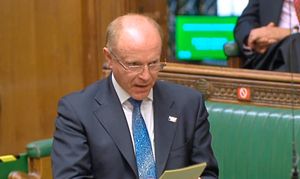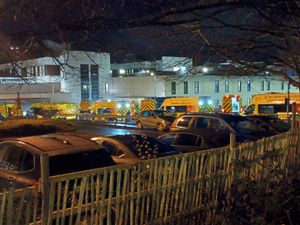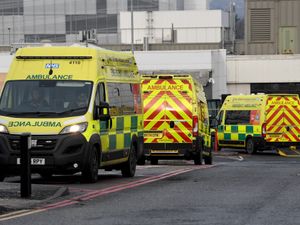Midlands has 'highest rates' of household virus transmission in the country, health chiefs say
The West Midlands has the highest rates of household coronavirus transmissions in the country, it has been revealed.
Public Health England (PHE) chiefs said the “significant number” of multi-generational households were likely to be a “key factor” in the increase.
PHE made the warning amid coronavirus rates continuing to increase – with the rate in the West Midlands now sitting at 348.7 per 100,000, above the national rate of 261.1 per 100,000.
Health chiefs have said families with elderly relatives in their households should try to keep away from each other despite it being “difficult”.
Dr Lola Abudu, deputy director for health and wellbeing at PHE West Midlands, said: “It may be difficult for some to separate themselves from household members, especially if they are living with children or have caring responsibilities.
“The increase in cases across the region is incredibly concerning, particularly among the over 60 age group, which is also having a significant impact on our hospitals and NHS staff.”
Currently, Dudley is one of the worst areas in the West Midlands regarding positive coronavirus case numbers, with 564 cases per 100,000.
Sandwell is at 508 cases per 100,000, Walsall is 408 and Wolverhampton is 370.
Stafford is currently at 411 cases per 100,000 in the latest week from November 8 to November 14, and Cannock Chase is 356.
MP urges people to be vigilant over virus ‘death sentence’

An MP in the Black Country has urged people to be vigilant over coronavirus, which could be a “death sentence” for elderly people.
Marco Longhi made the plea for families living with older people to follow lockdown measures in order to protect them from the virus.
It comes as health chiefs warned the increase in household transmissions was a “key factor” for the rise in positive cases in the region.
Households transmissions occur when someone – who has coronavirus – does not socially distance from others in the household.
And instead household members, who should avoid contact, are likely to interact repeatedly and share facilities with the person with the virus.
Health chiefs have said it is especially concerning when elderly relatives live in the same household – with the virus easily passed on to them.
It has led to an increase in people in the the over 60s age group – after they catch the virus in the home – going into hospital in the region.
The Dudley North MP said people needed to be wary of the “invisible enemy” among us and ensure people stay apart in the home – due to some people being asymptomatic.
Wisdom
He said: “As someone who comes from a background where families stick together generationally for longer than western countries do generally, I can completely understand what’s happening.
“But that also means we don’t have the same rates of isolation and our young people can benefit from the wisdom of the older people they live with.
“However, when we have this invisible enemy among us, which is particularly nasty to our older generation it makes it a lot more difficult.
“I would urge people as much as possible to continue to observe lockdown measures. “
Current national restrictions have already prevented people from mixing households – including visiting family members – to stem the transmission in households.
Mr Longhi said younger people could be carrying the virus without knowing – and could be giving their grandparents or elderly relatives a “death sentence”.
He added: “One of the messages that seems to have got lost in all this, is washing our hands. It’s the single most important thing we could do to keep this virus at bay.
“My daughter works at McDonalds and as much as I want to wrap my arms around her every time I see her, I don’t. I am aware she could be carrying the disease and not showing the symptoms.”



